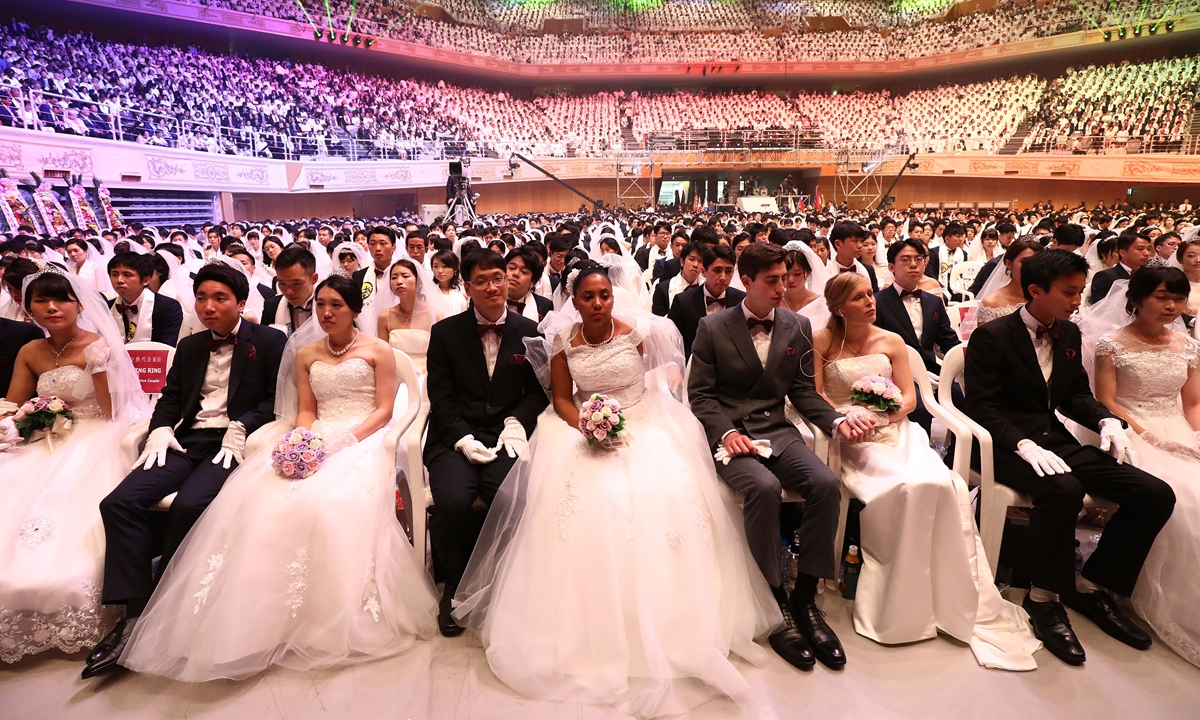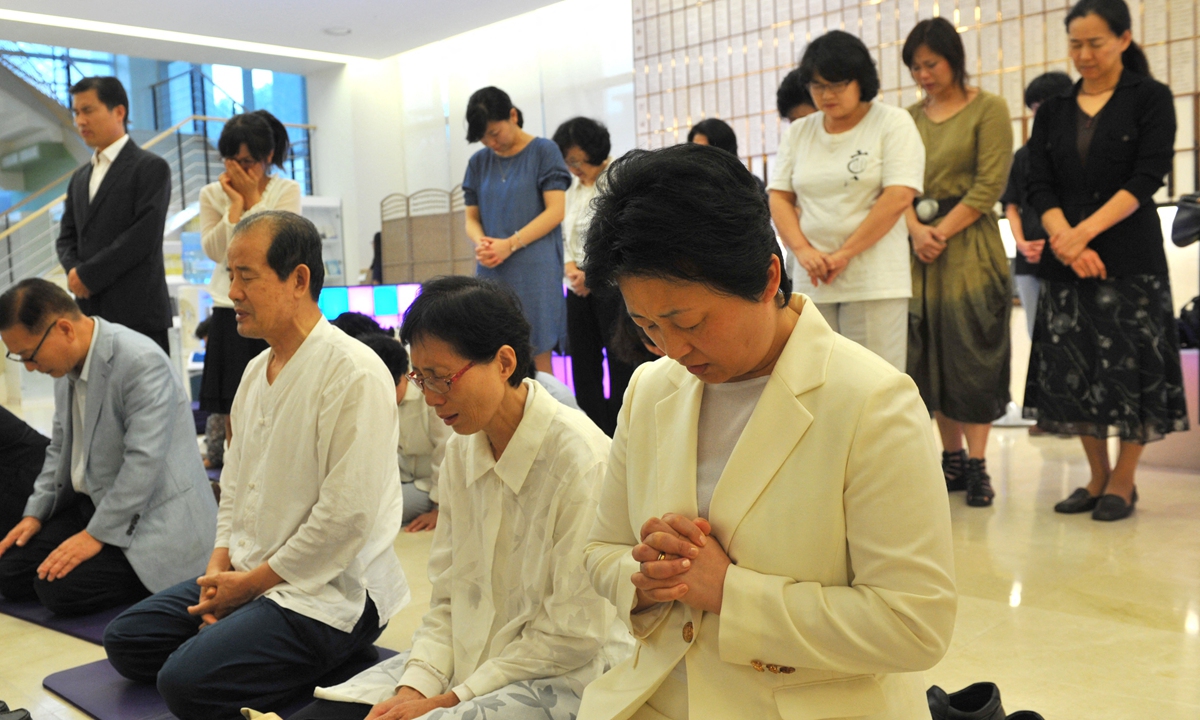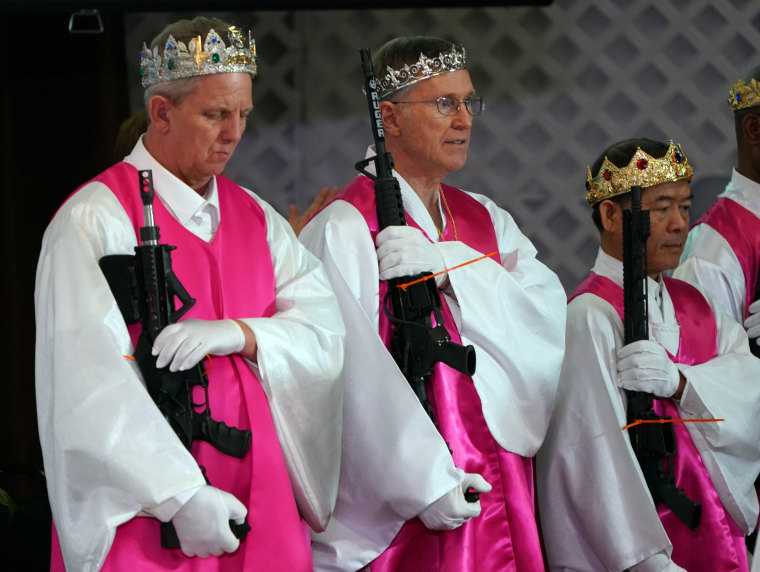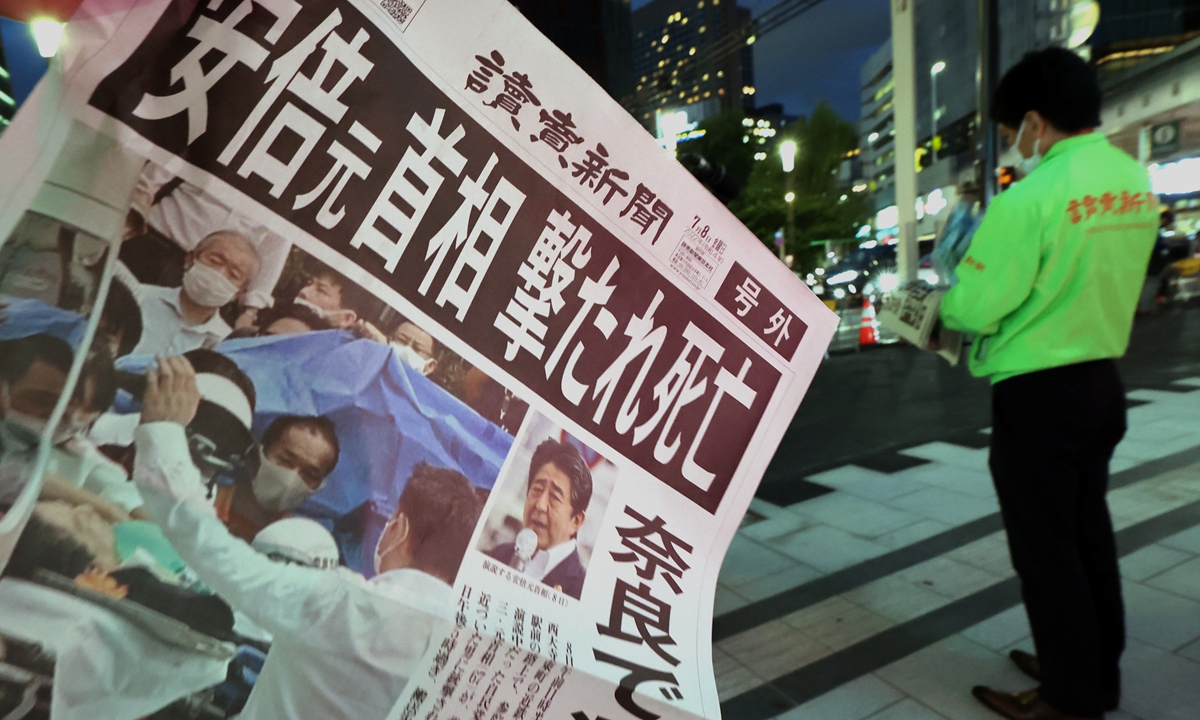What is the Unification Church and could it be linked to former Japanese prime minister Shinzo Abe’s assassination?
A bride poses for a photo before a giant image of the late founder of Unification Church Sun Myung Moon and his wife Hak Ja Han before a mass wedding ceremony in Gapyeong on September 7, 2017. Photo: AFP
The curtains have come down on former Japanese Prime Minister Shinzo Abe after the sobering end of his funeral. But the cloud of suspicion surrounding his assassination still looms large in the minds of many around the world. Sentiments of shock continue to be expressed at the fact that Japan's worst political assassination since World War II is related to a cult.
On July 8, Abe was fatally shot while addressing a crowd at a campaign stop in Nara by a 41-year-old man identified as Tetsuya Yamagami, who confessed to the police that he "did not resent Abe's political beliefs," but that his resentment toward the Family Federation for World Peace and Unification, known as the Unification Church, a religious movement founded in South Korea, turned into a desire to kill the former national leader. Yamagami believed Abe had promoted a religious group to which his mother made a "huge donation," Kyodo news agency has said, citing investigative sources. His mother subsequently went bankrupt. The police investigation into the assassination prompted the head of the Japanese branch of the Unification Church to confirm on July 11 that Yamagami's mother is a member. Looking back on the history of the Unification Church, people have seen the specter of an extremist religious group looming over the political arena of Japan, South Korea, and even the US. In the mid-1960s, Abe's maternal grandfather and former Japanese Prime Minister, Nobusuke Kishi, would never have imagined that his association with Sun Myung Moon, the founder of the Unification Church, would sow the seed that eventually led to the death of his grandson. Expansion of a cult Moon founded the Unification Church in South Korea in 1954. Within a year, about 30 church centers had sprung up. Moon began organizing the Unification Church on a large scale in the US in the early 1970s. He also sent his church emissaries to Japan in the early days when the Unification Church developed fast. He settled in the US in 1972.One of the activities that the Unification Church likes to practice is Tetsuya Yamagami. Moon claimed that he can complete the unfulfilled task of Jesus: To restore humankind to a state of perfection by producing sinless children, and by blessing couples who would produce them. According to media reports, thousands of couples often attended such mass weddings. But those couples would only meet each other weeks prior and they went into marriage based on Moon's arrangement. Many had to remain separated for several years doing church work.
 Thousands of couples attend a mass wedding held by the Unification
Church on August 27, 2018 in Gapyeong, South Korea. Photo: VCG
Thousands of couples attend a mass wedding held by the Unification
Church on August 27, 2018 in Gapyeong, South Korea. Photo: VCG

Thousands of couples attend a mass wedding held by the Unification Church on August 27, 2018 in Gapyeong, South Korea. Photo: VCG
Conservative tone During the Cold War, the Unification Church movement was criticized by the mainstream media for its anti-Communist activism. In 2010, Moon bought the US-based media publication the Washington Times into the New World Communications, an international media conglomerate similar to Rupert Murdoch's News Corporation, which owns Fox News. The conglomerate was directly affiliated with Moon's Unification Church, the US News reported. The newspaper often plays up claims that the Chinese mainland will "invade" the island of Taiwan, for example, citing US officials who accuse the Chinese military of posing an "acute threat" to the island The New York Times reported that Moon acknowledged that in the two decades since the founding of The Washington Times in 1982, he pumped in more than $1 billion in subsidies to keep it going. In 2002, during the 20th anniversary party for the Washington Times, Moon said, "The Washington Times will become the instrument in spreading the truth about God to the world," the Washington Post reported in 2009. Unification is a political concept, and the Unification Church, which uses this concept as its name, has always been a heretical religious organization with distinct political positions and intentions, Zhou noted.
Unification Church followers hold a memorial service mourning the death of their leader Sun Myung Moon in the church's Seoul headquarters on September 3, 2012.? Photo: AFP
Alarm bells
The cultist elements behind the Abe assassination have set off alarms in China, which has maintained a zero-tolerance attitude toward cults through various efforts. The Unification Church has been classified as a cult since the 1990s in China. In May 1997, the Ministry of Public Security listed the Unification church as a cultic organization, according to chinafxj.com, a website promoting China's anti-cult policies under the State Council. The chinafxj.com website states that the Unification Church has been infiltrating China since as early as the country's Reform and Opening-up in 1978 in the name of investment, sponsorship, and tourism, in a bid to take root in China and expand its influence. In recent years, the cult's infiltration efforts have become more active in China. Its affiliated organization "International Education Foundation," for instance, carried out penetration activities in some cities in the name of cultural exchange and educational cooperation. The church also set up branches secretly in Beijing, Tianjin, Guangzhou, Shenyang, Xi'an, and other major cities to carry out illegal missionary activities. Sunmoon University also tried to absorb Chinese believers via cooperation with China's universities, said the website. Currently in China, the Unification Church is among the list of 18 defined cultist organizations masquerading as Christian churches, according to chinafxj.com. The cults share similar traits and modes of operation, such as deifying leaders or founders, promoting inhumane, antisocial, and immoral theories, and inciting the public to confront the larger society, Yan Kejia, director of the Shanghai Academy of Social Sciences' Institute of Religious Studies, told the Global Times. "The cults could easily confuse the public by taking advantage of religious beliefs and feudal superstition." China has been cracking down on cults, especially since the late 1990s, Yan noted. "The efforts have been greatly beneficial. The campaigns against cults are widely understood and supported by the public and have brought a breath of fresh air to the society.""The Abe incident proved that governments should pay great attention to issues surrounding cultic activities. It also reminds China that the work to fight cults should be consistently enhanced," he said.
ELATED ARTICLES
Unification Church confirms mother of Abe suspect is member
In this file photo taken on April 21, 2015 Japanese Prime Minister Shinzo Abe waves as he headed for Indonesia at the Tokyo International Airport. Photo:AFP
Scrutiny falls on Unification Church after Shinzo Abe's ...
The offshoot church, which promotes gun ownership, gained attention in 2018 when news reports showed images of worshippers wearing crowns and carrying unloaded AR-15 rifles as couples renewed or exchanged wedding vows — just days after the school shooting in Parkland, Florida.

Worshippers at the World Peace and Unification Sanctuary hold weapons at a service in New Foundland, Pa., on Feb. 28, 201
RELATED POSTS:
South Korea pardons disgraced ex-president Park Geun-hye who was misled/cheated by her close friend Choi Soon-sil with the Church of Eternal Life
Choi Soon Sil, the 'female Rasputin' at centre of South Korea's political scandals
















